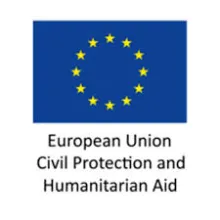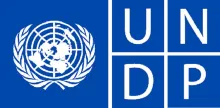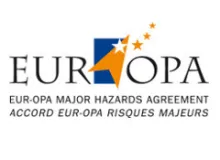Partnerships
At DPPI SEE, partnerships are at the heart of our mission to enhance disaster preparedness and prevention across Southeast Europe. We collaborate with a wide range of national, regional, and international organizations to build stronger disaster management systems and foster a culture of resilience.
The partners usually participate in DPPI SEE regional meetings as part of DPPI SEE’s Advisory Board. It makes them able to present common work and cooperation opportunities with DPPI SEE Secretariat and member states.
Why Partner with DPPI SEE?
Partnering with DPPI SEE offers a unique opportunity to:
-
Leverage Regional Expertise: As a regional platform, DPPI SEE brings together national civil protection authorities from 10 member states, offering valuable insights and expertise on disaster preparedness and prevention.
-
Promote Cross-Border Collaboration: Our network encourages cooperation between governments, international organizations, NGOs, and the private sector to ensure a coordinated response to disasters that transcend borders.
-
Access a Strong Network: By partnering with DPPI SEE, organizations can engage with a broad network of disaster management professionals, policymakers, and experts across the Balkans and Southeast Europe.
-
Contribute to Regional Resilience: Together, we can help build more resilient communities by developing joint projects, sharing best practices, and enhancing the capacity of national disaster management systems.
How to Partner with DPPI SEE?
We are always open to new partnerships that can help us achieve our goals. If your organization is interested in collaborating with DPPI SEE on projects, capacity-building initiatives, or knowledge-sharing activities, please contact us at [contact information].
Together, we can build a safer, more resilient Southeast Europe.
Key Partners
DPPI SEE works closely with a variety of stakeholders, including international governmental and non-governmental organizations that focus on disaster risk reduction, preparedness, and humanitarian aid, academic and research institutions that contribute valuable data, studies, and innovative approaches to disaster management and private sector partners, such as logistics companies and technology providers, who play a critical role in enhancing disaster prevention, preparedness, response and recovery.
Current partnerships

European Civil Protection and Humanitarian Aid Operations
As a longstanding supporter, As a longstanding supporter, European Commission’s Civil Protection and Humanitarian Aid Operations department (DG ECHO) enhances DPPI SEE’s access to EU instruments, methodologies, and funding opportunities. DPPI SEE serves as a platform offering insights into the implementation of broader DG ECHO-funded projects in South-Eastern Europe, amplifying the voices of countries from the IPA region and Türkiye, as well as the project consortiums responsible for their delivery. Operations department (DG ECHO) enhances DPPI SEE’s access to EU instruments, methodologies, and funding opportunities. DPPI SEE serves as a platform offering insights into the implementation of broader DG ECHO-funded projects in South-Eastern Europe, amplifying the voices of countries from the IPA region and Türkiye, as well as the project consortiums responsible for their delivery.

Regional Cooperation Council (RCC)
The cooperation between Regional Cooperation Council (RCC) and DPPI SEE strengthens regional disaster risk governance. RCC offers political support by promoting DPPI SEE’s work, joining regional meetings, and advocating at high levels. DPPI SEE provides technical expertise to RCC’s disaster risk reduction strategies, ensuring alignment with field realities. This partnership improves coordination with national authorities and supports the integration of disaster resilience into broader regional and EU agendas. It reflects a shared commitment to safer, more resilient South-Eastern Europe through strategic and complementary collaboration.

Unicef
DPPI SEE and UNICEF ECARO have partnered to promote a child-sensitive approach to disaster risk management in Southeastern Europe. Their goal is to integrate children's needs into DRR policies and strengthen institutional capacities to protect children in crises. Based on a 2024 MoU, activities in 2025–2026 include regional/national workshops, trainings, and simulations. The partnership also supports child-sensitive risk assessments, joint advocacy at platforms like EPDRR, and technical support to ensure emergency systems better protect vulnerable children and families.

UNDRR
In partnership with UNDRR ROECA, DPPI SEE is enhancing resilience, disaster risk financing, risk knowledge, and SME resilience in Southeastern Europe. Aligned with the Sendai Framework, key actions include supporting the Making Cities Resilient 2030 campaign, facilitating ToT sessions, and guiding cities in resilience assessments. The collaboration promotes SME-focused workshops and strengthens risk knowledge through updates to disaster loss databases and the introduction of UNDRR’s new disaster loss data tracking system. Activities also support Sendai reporting, regional cooperation, and alignment with DRR and Climate Change Adaptation strategies.

UNDP
DPPI SEE and UNDP are jointly working on implementing a Preparedness Learning Pathway to strengthen disaster preparedness across the region. This roadmap will build practitioner competencies in risk-informed planning, anticipatory action, resilient recovery, and adaptive preparedness. Through targeted workshops and learning sessions, the initiative enhances national and regional capacities. It also aligns DPPI SEE’s Disaster Management Training Programme with UNDP initiatives and global best practices, promoting evidence-based, impact-driven capacity development and embedding resilience thinking into policies and operations.

EUR-OPA Major Hazards Agreement
The EUR-OPA Major Hazards Agreement is a Council of Europe’s platform for cooperation on disaster risk reduction, covering prevention, preparedness, risk management, and post-crisis analysis. DPPI SEE participates as an observer, as its status as an international organization prevents it from being designated a specialized centre. These centres develop national and regional projects to enhance public awareness and resilience to major risks. DPPI SEE maintains communication with the EUR-OPA Secretariat and supports the platform’s objectives through collaboration and knowledge exchange.

RACVIAC
DPPI SEE and Centre for Security Cooperation (RACVIAC) began formal cooperation in 2010 to strengthen regional collaboration in disaster risk reduction, civil protection, and crisis management. Sharing complementary mandates, they committed to dialogue, capacity building, and best practice exchange. Their first joint activity—a workshop on incident command systems—was held in 2024. The partnership promotes institutional strengthening, inter-agency coordination, and improved disaster risk understanding, with a shared goal of enhancing security, stability, and resilience across South-Eastern Europe through joint preparedness and response initiatives.

DHL
DPPI SEE and DHL are working together to formalize cooperation to strengthen disaster preparedness and response in South-Eastern Europe. Combining DHL’s logistics expertise with DPPI SEE’s regional network, the partnership aims to improve humanitarian logistics and community resilience. Aligned with DHL’s GoHelp Program—particularly GARD—the collaboration will enhance airport readiness, support national civil protection authorities, and promote joint capacity building through training, simulations, and knowledge-sharing. Activities, guided by annual work plans, align with DPPI SEE’s strategic goals and emphasize innovation, cross-sectoral collaboration, and practical, scalable disaster risk management.

Sphere
As the regional focal point for Sphere standards, DPPI SEE promotes people-centred, rights-based humanitarian action. A 2023–2026 MoU with the Sphere Association strengthens this partnership, focusing on the Sphere Handbook and Humanitarian Standards Partnership (HSP). Through Training of Trainers and regional advocacy, DPPI SEE embeds quality and accountability into disaster preparedness and response. Sphere supports with technical guidance and global visibility. Together, they enhance community resilience and improve outcomes for crisis-affected populations in South-Eastern Europe.

Involvement in the projects
DPPI SEE actively contributes to EU-funded projects supporting disaster preparedness in Southeastern Europe. Within the OSA project, it aids six member states through expertise, advisory missions, and capacity building. In IPA CARE, it collaborates on integrating health and civil protection systems and coordinates co-funded training events. Through the SYNERGIES project, DPPI SEE supports inclusive, community-based preparedness by engaging in dissemination and workshops, promoting holistic disaster resilience approaches. These efforts align with DPPI SEE’s Strategic Development and Partnership objectives.